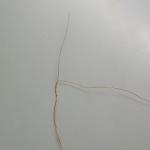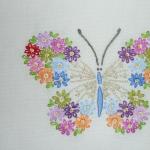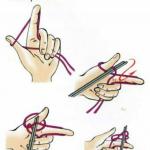Дом парламента на английском языке с переводом. Топик на английском The British Parliament (Парламент Великобритании)
Great Britain is a constitutional monarchy. This means that it has a monarch as its Head of the State. The monarch reigns with the support of Parliament. The powers of the monarch are not defined precisely. Everything today is done in the Queen"s name. It is her government, her armed forces, her law courts and so on. She appoints all the Ministers, including the Prime Minister. Everything is done however on the advice of the elected Government, and the monarch takes no part in the decision-making process.
Once the British Empire included a large number of countries all over the world ruled by Britain. The process of decolonisation began in 1947 with the independence of India, Pakistan and Ceylon. Now there is no Empire and only few small islands belong to Britain. In 1997 the last colony, Hong Kong, was given to China. But the British ruling classes tried not to lose influence over the former colonies of the British Empire. An association of former members of the British Empire and Britain was founded in 1949. It is called the Commonwealth. It includes many countries such as Ireland, Burma, the Sudan, Canada, Australia, New Zealand and others. The Queen of Great Britain is also a Head of the Commonwealth, and also the Queen of Canada, Australia, New Zealand...
The British Constitution. The British Constitution is to a large extent a product of many historical events and has thus evolved aver many centuries. Unlike the constitutions of most other countries, it is not set out in any single document. Instead it is made up of statute law, common law and conventions. The constitution can be change by Act of Parliament, or by general agreement to alter a convention.
The Monarchy in Britain. When the Queen was born on 21 April 1926, her grandfather, King George V, was on the throne and her uncle was his heir. The death of her grandfather and the abdication of her uncle (King Edward VIII) brought her father to the throne in 1936 as King George VI. Elizabeth II came to the throne an 6 February 1952 and was crowned on 2 June 1953. Since then she made many trips to different countries and to the UK also. The Queen is very rich, as are others members of the royal family. In addition, the government pays for her expenses as Head of the State, for a royal yacht, train and aircraft as well as for the upkeep of several palaces. The Queen"s image appears on stamps, notes and coins.
The Powers of Parliament. The three elements, which make up Parliament –the Queen, the House of Lords and the elected House of Commons –, are constituted on different principles. They meet together only on occasions of symbolic significance such as the State Opening of Parliament, when the Commons are invited by the Queen to the House of Lords.
Parliament consists of two chambers known as the House of Lords and the House of Commons. Parliament and the monarch have different roles in the government of the country, and they only meet together on symbolic occasions such as coronation of a new monarch or the opening of Parliament. In reality, the House of Commons is the only one of the three which is true power. It is here that new bills are introduced and debated. If the majority of the members aren"t in favour of a bill it goes to the House of Lords to be debated and finally to the monarch to be signed. Only than it becomes law. Although a bill must be supported by all three bodies, the House of Lords only has limited powers, and the monarch hasn"t refused to sign one.
The Functions of Parliament. The main functions of Parliament are: to pass laws; to provide, by voting taxation, the means of carrying on the work of government; to scrutinise government policy and administration; to debate the major issues of the day. In carrying out these functions Parliament helps to bring the relevant facts and issues before the electorate. By custom, Parliament is also informed before all-important international treaties and agreements are ratified.
A Parliament has a maximum duration of five years, but in practice general elections are usually held before the end of this term. Parliament is dissolved and rights for a general election are ordered by the Queen on the advice of the Prime Minister. The life of a Parliament is divided into sessions. Each usually lasts for one year – normally beginning and ending in October or November. The adverse number of "sitting" days in a session is about 168 in the House of Commons and about 150 in the House of Lords. At the start of each session the Queen"s speech to Parliament outlines the Government"s policies and proposed legislative programme.
The House of Commons. The House of Commons is elected and consists of 651 Members of Parliament (MPs). At present there are 60 women, three Asian and three black Mps. Of the 651 seats, 524 are for England, 38 for Wales, 72 for Scotland, and 17 for Northern Ireland. Members are paid an annual salary of ‡30,854. The chief officer of the House of Commons is the Speaker, elected by the MPs to preside over the House. The House of Commons plays the major role in law making.
MPs sit on two sides of the hall, one side for the governing party and the other for the opposition. Parliament has intervals during its work. MPs are paid for their parliamentary work and have to attend the sittings. MPs have to catch the Speaker"s eye when they want to speak, then they rise from where they have been sitting to address the House and must do so without either reading a prepared speech or consulting notes.
The House of Lords. The House of Lords consists of the Lords Spiritual and the Lords Temporal. The Lords Spiritual are the Archbishops of Canterbury and York, and the 24 next most senior bishops of the Church of England. The Lords Temporal consist of: all hereditary peers of England, Scotland, Great Britain and the United Kingdom; all other life peers. Peerages, both hereditary and life, are created by the Sovereign on the advice of the Prime Minister. They are usually granted in recognition of service in politics or other walks of life. In 1992 there were 1,211 members of the House of Lords, including the two archbishops and 24 bishops. The Lords Temporal consisted of 758 hereditary peers and 408 life peers. The House is presided over by the Lord Chancellor, who takes his place on the woolsack as the Speaker of the House.
The division of Parliament into two Houses goes back over some 700 years when feudal assembly ruled the country. In modern times, real political power rests in the elected House although members of the House of Lords still occupy important cabinet posts.
The Political Party System. The present political system depends upon the existence of organised political parties, each of which presents its policies to the electorate for approval. The parties are not registered or formally recognised in law, but in practice most candidates in elections, and almost all winning candidates, belong to one of" the main parties.
For the last 150 years there were only 2 parties: the Conservative Party and the Labour Party. A new party – the Liberal Democrats – was formed in 1988. Social Democratic Party is also the new one founded in 1981. Other parties include two nationalist parties, Plaid Cymru (founded in Wales in 1925) and the Scottish National Party (founded in 1934).
The effectiveness of the party system in Parliament rests largely on the relationship between the Government and the Opposition parties. Depending on the relative strengths of the parties in the House of Commons, the Opposition may seek to overthrow the Government by defeating it in a vote on a "matter of confidence". In general, however, its aims are to contribute to the formation of policy and legislation by constructive criticism; to oppose government proposal - it considers objectionable; to seek amendments to government bills; and to put forward its own policies in order to improve its chances of winning the next general election.
Because of the electoral method in use, only two major parties obtain seats in the House of Commons. People belonging to smaller political parties join one of the larger parties and work from within to make their influence felt. The exception to this are members of the Scottish National and Welsh Nationalist Parties, who, because their influence votes are concentrated in specific geographical areas, can manage to win seats although their total support is relatively small.
Her Majesty"s Government: Prime Minister, the Cabinet. Her Majesty"s Government is the body of ministers responsible for the administration of national affairs. The Prime Minister is appointed by the Queen, and all other ministers are appointed by the Queen on the recommendation of the Prime Minister. Most ministers are members of the Commons, although the Government is also fully represented by ministers in the Lords. The composition of governments can vary both in the number of ministers and in the titles of some offices. New ministerial offices may be created, others may be abolished and functions may be transferred from one minister to another.
The Prime Minister is also, by tradition, First Lord of the Treasury and Minister for the Civil Service. The Prime Minister"s unique position of authority derives from majority support in the House of Commons and from the power to appoint and dismiss ministers. By modern convention, the Prime Minister always sits in the House of Commons. The Prime Minister presides over the Cabinet, is responsible for the allocation of functions among ministers and informs the Queen at regular meetings of the general business of the Government. The Prime Minister"s Office is situated at 11 Downing Street.
The Cabinet is composed of about 20 ministers chosen by the Prime Minister. The functions of the Cabinet are initiating and deciding on policy, the supreme control of government and the co-ordination of government departments. The exercise of these functions is vitally affected by the fact that the Cabinet is a group of party representatives, depending upon majority support in the House of Commons. The Cabinet meets in private and its proceedings are confidential. Its members are bound by their oath as Privy Counsellors not to disclose information about its proceedings, although after 30 years Cabinet papers may be made available for inspection.
So Great Britain is the constitutional monarchy. Monarch is the Head of the State. But Queen or King rules with the support of the parliament. And practically monarch have no real political power. The main political decisions are made by the Parliament and Cabinet. And the House of Commons are more powerful.
The British Parliament is the oldest in the world. It originated in the 12th century as Witenagemot, the body of wise counsellors whom the King needed to consult pursuing his policy. The British Parliament consists of the House of Lords and the House of Commons and the Queen as its head. The House of Commons plays the major role in law-making. It consists of Members of Parliament (called MPs for short). Each of them represents an area in England, Scotland, Wales and Ireland. MPs are elected either at a general election or at a by-election following the death or retirement. Parliamentary elections are held every 5 years and it is the Prime Minister who decides on the exact day of the election. The minimum voting age is 18. And the voting is taken by secret ballot. The election campaign lasts about 3 weeks, The British parliamentary system depends on political parties.
The party which wins the majority of seats forms the government and its leader usually becomes Prime Minister. The Prime Minister chooses about 20 MPs from his party to become the cabinet of ministers. Each minister is responsible for a particular area in the government. The second largest party becomes the official opposition with its own leader and "shadow cabinet". The leader of the opposition is a recognized post in the House of Commons.
The parliament and the monarch have different roles in the government and they only meet together on symbolic occasions, such as coronation of a new monarch or the opening of the parliament.
In reality, the House of Commons is the one of three which has true power. The House of Commons is made up of six hundred and fifty elected members, it is presided over by the speaker, a member acceptable to the whole house. MPs sit on two sides of the hall, one side for the governing party and the other for the opposition. The first 2 rows of seats are occupied by the leading members of both parties (called "front benches") The back benches belong to the rank-and-life MPs. Each session of the House of Commons lasts for 160-175 days. Parliament has intervals during his work. MPs are paid for their parliamentary work and have to attend the sittings. As it was mentioned above, the House of Commons plays the major role in law making. The procedure is the following: a proposed law ("a bill") has to go through three stages in order to become an act of parliament; these are called "readings".
The first reading is a formality and is simply the publication of the proposal. The second reading involves debate on the principles of the bill; it is examination by parliamentary committee. And the third reading is a report stage, when the work of the committee is reported on to the house. This is usually the most important stage in the process. When the bill passes through the House of Commons, it is sent to the House of Lords for discussion, when the Lords agree it, the bill is taken to the Queen for royal assent, when the Queen sings the bill, it becomes act of the Parliament and the Law of the Land. The House of Lords has more than 1000 members, although only about 250 take an active part in the work in the house. Members of this Upper House are not elected, they sit there because of their rank, and the chairman of the House of Lords is the Lord Chancellor. And he sits on a special seat, called "WoolSack" The members of the House of Lords debate the bill after it has been passed by the House of Commons.
The British Parliament is the oldest in the world. It originatedin the 12th century as Witenagemot, the body of wise councillorsto consult the King in his policy. The BritishParliament consists of the House of Lords and the House ofCommons and the Queen as its head. The House of Commons plays themajor role in law-making. It consists of Members of Parliament(called MPs for short). Each of them represents an area inEngland, Scotland, Wales and Ireland. MPs are elected either at ageneral election or at a by-election following the death orretirement. Parliamentary elections are held every 5 years and itis the Prime Minister who decides on the exact day of theelection. The minimum voting age is 18. And the voting is takenby secret ballot. The election campaign lasts about 3 weeks, TheBritish parliamentary system depends on politicals parties. Theparty which wins the majority of seats forms the goverment andits leader usually becomes Prime Minister. The Prime Ministerchooses about 20 MPs from his party to become the cabinet ofministers. Each minister is responsible for a particular area inthe goverment. The second largest party becomes the officialopposition with its own leader and "shadow cabinet". The leaderof the opposition is a recognized post in the House of Commons.The parliament and the monarch have different roles in thegoverment and they only meet together on symbolic occasions, suchas coronation of a new monarch or the opening of the parliament.In reality, the House of Commons is the one of three which hastrue power. The House of Commons is made up of six hundred andfifty elected members, it is presided over by the speaker, amember acceptable to the whole house. MPs sit on two sides of thehall, one side for the governing party and the other for theopposition. The first 2 rows of seats are occupied by the leadingmembers of both parties (called "front benches") The back benchesbelong to the rank-and-life MPs. Each session of the House ofCommons lasts for 160-175 days. Parliament has intervals duringhis work. MPs are paid for their parliamentary work and have toattend the sittings. As mention above, the House of Commons playsthe major role in law making. The procedure is the following: aproposed law ("a bill") has to go through three stages in orderto become an act of parliament, these are called "readings". Thefirst reading is a formality and is simply the publication of theproposal. The second reading involves debate on the principles ofthe bill, it is examination by parliamentary committy. And thethird reading is a report stage, when the work of the committy isreported on to the house. This is usually the most importantstage in the process. When the bill passes through the House ofCommons, it is sent to the House of Lords for discussion, whenthe Lords agree it, the bill is taken to the Queen for royalassent, when the Queen sings the bill, it becomes act of theParliament and the Law of the Land. The House of Lords has morethan 1000 members, although only about 250 take an active part inthe work in the house. Members of this Upper House are notelected, they sit there because of their rank, the chairman ofthe House of Lords is the Lord Chancellor. And he sits on aspecial seat, called "Wool Sack." The members of the House of Lordsdebate the bill after it has been passed by the House of Commons.Some changes may be recommended and the agreement between the twohouses is reached by negotiations.
Britain is administered from the Palace of Westminster in London. This is also known as the Houses of Parliament. Parliament is made up of two chambers - the House of Commons and the House of Lords.
The members of the House of Lords are not elected: they qualify to sit in the House because they are bishops of the Church of England, aristocrats who have inherited their seats from their fathers, people with titles. There has been talk of reform in this century because many Britons think that this system is undemocratic.
The House of Commons, by contrast, has 650 seats which are occupied by Members of Parliament (MPs) who are elected by the British public. The United Kingdom is divided into constituencies, each of which has an elected MP in the House of Commons.
Each of the major political parties appoints a representative (candidate) to compete for each seat. Smaller parties may have a candidate in only a few constituencies. There may be five or more parties, fighting for one seat, but only one person - the candidate who gets the greatest number of votes - can win.
Some parties win a lot of seats and some win very few, or none at all. The Queen, who is the Head of State, opens and closes Parliament. All new laws are debated (discussed) by MPs in the Commons, then debated in the Lords, and finally signed by the Queen.
All three are part of Parliament in Britain.
Парламент. Вестминстерский дворец.
Правительство Британии находится в Вестминстерском дворце в Лондоне. Вестминстерский дворец известен также как Дом парламента. Парламент состоит из двух палат - палаты общин и палаты лордов.
Членов палаты лордов не избирают: они являются членами парламента, потому что они - епископы английской церкви и аристократы, которые унаследовали свои места от отцов, титулованных особ. Идут разговоры о реформе этой системы в настоящем столетии, т. к. многие британцы не считают такую систему демократичной.
Палата общин, напротив, имеет 650 мест. Эти места занимаются членами парламента, избираемыми британским народом. Соединенное Королевство разделено на избирательные округа, каждый из которых имеет своего представителя (члена парламента) в палате общин.
Каждая из основных политических партий назначает представителя (кандидата), чтобы бороться за место в парламенте. Меньшие партии могут иметь кандидатов только лишь в нескольких округах. За одно место могут бороться пять и более партий, но победить может лишь один человек -- кандидат, получающий самое большое количество голосов.
Некоторые партии получают много мест, другие - совсем мало или вообще не получают. Королева, глава государства, открывает и закрывает парламент. Все законы обсуждаются членами палаты общин, затем - членами палаты лордов и, наконец, подписываются королевой.
Парламент в Британии составляют: королева, палата общин, палата лордов.
Questions:
1. What is Parliament made up of?
2. Are the members of the House of Lords elected?
3. What do Britons think about this system?
4. Who appoints a representative to compete for each seat?
5. Who can win the seat?
6. Who is the Head of State?
Vocabulary:
to be made up of - состоять из
elected - избираемый
inherited - унаследованный
seat - место
constituency - избирательный округ
candidate - кандидат
vote - голосование, право голоса
БРИТАНИЯ И БРИТАНЦЫ
THE BRITISH PARLIAMENT
The UK Parliament is one of the oldest representative быть установлен in the world, having its origins in the middle of the 13th century. From the 14th century, parliamentary government in the United Kingdom has been based on a two-chamber system. The House of Lords (the upper house) and the House of Commons (the lower house) sit separately and are constituted on entirely different principles. The relationship between the two Houses is governed largely by convention but is in part defined by the Parliament Acts. The legislative process involves both Houses of Parliament and the Monarch.
In the beginning, Great Britain was an absolute monarchy, but in the 17th century, tensions increased between parliament and monarch. Civil War broke out the following year, leading to the execution of King Charles 1 in January 1649. Following the restoration of the Monarchy in 1660, the role of parliament was enhanced by the events of 1688-89 (the ‘Glorious Revolution’) which established the authority of Parliament over the King. The state political system became to be Parliament monarchy. Nowadays the Monarch is no more but a symbol and tradition of the nation.
The British Parliament consists of the House of Lords and the House of Commons and the Queen.
Today the House of Commons plays the major role in law-making. It consists of Members of Parliament. Each of them represents an area in England, Scotland, Wales and Ireland. Members of Parliament are elected either at a general election or at a by-election following the death or retirement of one of them. Parliament has a maximum duration of five years. At any time up to the end of this period, a general election can be held for a new House of Commons and it is the Prime Minister who decides on the exact day of the election. The minimum voting age is 18. The election campaign lasts about three weeks, the British parliamentary system depends on political parties. The party which wins the majority of seats forms the government and its leader usually becomes Prime Minister. The Prime Minister chooses about 20 MPs from his party to become the cabinet of ministers. Each minister is responsible for a particular area in the government. The second largest party becomes the official opposition with its own leader and «shadow cabinet». The leader of the opposition is a recognized post in the House of Commons. The parliament and the monarch have different roles in the government and they only meet together on symbolic occasions, such as coronation of a new monarch or the opening of the parliament. In reality, the House of Commons is the one of three which has true power.
The House of Commons is made up of six hundred and fifty elected members, it is presided over by the speaker, a member acceptable to the whole house. MPs sit on two sides of the hall, one side for the governing party and the other for the opposition. The first two rows of seats are occupied by the leading members of both parties. Each session of the House of Commons lasts for 160-175 days. MPs are paid for their parliamentary work and have to attend the sittings. As mentioned above, the House of Commons plays the major role in law making. The procedure is the following: a proposed law («a bill») has to go through three stages in order to become an act of parliament; these are called «readings». The first reading is a формальность and is simply the publication of the proposal. The second reading involves debate on the principles of the bill. And the third reading is a report stage. This is usually the most important stage in the process. When the bill passes through the House of Commons, it is sent to the House of Lords for discussion, when the Lords agree it, the bill is taken to the Queen for royal assent, when the Queen signs the bill, it becomes act of the Parliament and the Law of the Land.
The House of Lords has more than 1000 members, although only about 250 take an active part in the work of the house. Members of this Upper House are not elected, they sit there because of their rank and the chairman of the" House of Lords is the Lord Chancellor. And he sits on a special seat, called «Woolsack». It is another tradition of Great Britain. The members of the House of Lords debate the bill after it has been passed by the House of Commons. Some changes may be recommended and the agreement between the two houses is reached by negotiations.
QUESTIONS
1. When was the UK Parliament established?
2. When did the parliamentary government in the United Kingdom begin to be based on a two-chamber system?
3. How is the upper house called?
4. How is the lower house called?
5. How is the relationship between the two Houses governed?
6. Who are involved in the legislative process in the British Parliament?
7. Whom does the real power in the Parliament belong to?
8. When did the Monarchy restoration happen?
9. What happened to King Charles I?
10. When was the King Charles I executed?
11. Does the Monarch have the real legislative power in Great Britain nowadays?
12. Is the state political system of Great Britain an absolute monarchy today?
13. What political system does Great Britain have today?
14. Who decides on the exact day of the election to be held for a new House of Commons?
15. Who always stands in the official opposition in the Parliament?
16. How many members are there in the House of Commons?
17. How many members are there in the House of Lords?
18. Are members of the House of Lords paid for their parliamentary work?
19. What is the minimum voting age in Great Britain?
20. What is a maximum duration for the Parliament?
VOCABULARY
representative - полет, представительный
origins - происхождение, начало
two-chamber system - двухпалатная система
the House of Lords - палата лордов (верхняя палата британского парламента)
the House of Commons - палата общин (нижняя палата британского парламента)
to constitute - составлять; учреждать; создавать
to govern - править, управлять
convention - соглашение, договоренность, договор, конвенция
to define - определять, давать определение
to involve - взимать
tension - противоречия, напряженность
to break (past broke, p.p. broken) out - разразиться
restoration - ист. Реставрация (в 1660 p . в Англии)
to enhance - увеличивать, усиливать
to elect - выбирать, выбирать
retirement - выход в отставку; выход на пенсию; отход от дел
the Prime Minister - премьер-министр
to depend on - зависеть от MP - сокращение от член парламента)
responsible - ответственный, несущий ответственность, отвечающий
coronation - коронация
to make (past made, p.p. made) up - здесь: состоять из
the speaker - спикер
row - ряд
to attend - посещать; присутствовать
to mention - упоминать, ссылаться на
bill - законопроект, билль
proposal - предложение; план
royal assent - королевская одобрение, утверждение, разрешение
rank - ранг
chairman - председатель
the Lord Chancellor - лорд-канцлер
negotiations - переговоры
БРИТАНСКИЙ ПАРЛАМЕНТ
Парламент Великобритании является одним из самых древних представительных собраний в мире, беря свое начало с середины XIII столетия. С XIV столетия парламентский правительство в Великобритании был основан на системе с двумя палатами. Палата лордов (верхняя палата) и палата общин (нижняя палата) заседают отдельно, и их состав основывается на совершенно разных принципах. Отношения между двумя палатами строятся, в значительной степени, в соответствии с соглашением, но частично определяются парламентскими актами. Законодательный процесс объединяет в себе обе парламентские палаты и монарха.
Сначала Великобритания была абсолютной монархией, но в XVII столетии напряжение в отношениях между парламентом и монархом увеличилось. Через год вспыхнула гражданская война, которая привела к казни короля Чарльза i в январе 1649 г. После восстановления монархии в 1660 г. усилилась роль парламента событиями 1688-1689 гг ., что установили приоритетную власть парламента над королем. Государственная политическая система стала парламентской монархией. В наше время монарх не более чем символ и традиция нации.
Британский парламент состоит из палаты лордов, палаты общин и королевы.
Сегодня палата общин играет главную роль в законодательстве. Она состоит из членов парламента. Каждый из них представляет область в Англии, Шотландии, Уэльсе и Ирландии. Члены парламента избираются или на общих выборах, или на дополнительных выборах после смерти или отставки одного из них. Парламент избирается на максимальный срок в пять лет. В любое время до конца этого периода могут быть проведены всеобщие выборы для формирования новой палаты общин, точную дату выборов устанавливает премьер-министр. Минимальный возраст избирателя 18 лет. Избирательная кампания длится примерно 3 недели, британская парламентская система зависит от политических партий. Партия, которая выигрывает большинство мест, формирует правительство, а ее лидер обычно становится премьер-министром. Премьер-министр выбирает примерно 20 членов парламента из своей партии, которые входят в кабинет министров. Каждый министр в правительстве отвечает за определенную сферу. Вторая по численности партия становится официальной оппозицией с ее собственным лидером и «теневым кабинетом». Лидер оппозиции является признанной должности в палате общин. Парламент и монарх имеют разные роли в правительстве, и они встречаются вместе только в символических случаях, таких как коронация нового монарха или открытия парламента. В действительности же, палата общин - это одна из трех ветвей власти, что имеет настоящую власть.
Палата общин состоит из выборных шестисот пятидесяти членов, возглавляемых спикером, кандидатура которого должна быть одобрена всей палатой. Члены парламента сидят с двух сторон зала: одна сторона - для правящей партии, и другой - для оппозиции. Первые 2 ряда мест заняты ведущими членами обеих партий. Каждая сессия палаты общин продолжается в течение 160-175 дней. Парламент имеет интервалы в своей работе. Члены парламента получают зарплату за свою парламентскую работу и должны посещать заседания. Как сказано выше, палата общин играет главную роль в законодательстве. Процедура такая: предложенный законопроект (билль) должен пройти три стадии, чтобы стать парламентским актом: они называются «чтение». Первое чтение является простой формальностью, это просто публикация предложения. Повторное чтение представляет собой дебаты о сути законопроекта. И третье чтение - стадия объявление. Это, как правило, важнейшая стадия процесса. Когда законопроект проходит через палату общин, он отправляется палате лордов для обсуждения; когда лорды соглашаются, этот законопроект отправляется королеве, чтобы она его одобрила, когда королева принимает законопроект, он становится парламентским актом и законом государства.
Палата лордов имеет более 1000 членов, хотя только примерно 250 принимают активное участие в ее работе. Члены верхней палаты не избираются, они заседают там благодаря своему статусу, председатель палаты лордов - лорд-канцлер. Он сидит на специальном месте, называемом «вулсек» (шерстяной мешок). Члены палаты лордов обсуждают законопроект после того, как он прошел через палату общин. Некоторые изменения могут быть рекомендованы, а соглашение между двумя палатами может быть достигнута путем переговоров.






